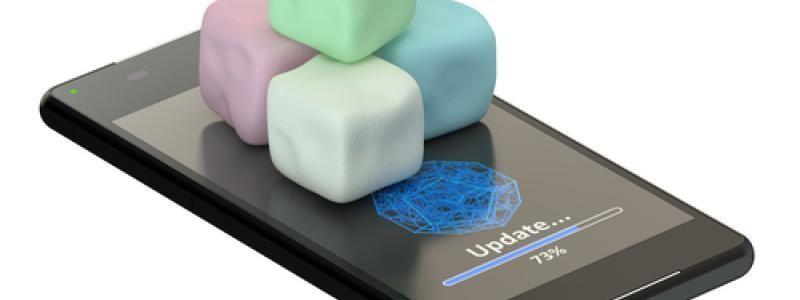10 Percent Of All Android Devices Now Powered By Android Marshmallow

Based on developer stats for early June, the newest version of Google’s Android mobile operating system has now breached 10 percent. By now powering more than a tenth of all Android devices, Android Marshmallow showed a significant improvement over the 2.3 percent it registered in March early this year.
Of course, a big reason for Android Marshmallow’s sudden leap in usage is the influx of mobile users finally deciding to move on from Android Lollipop. Speaking of Marshmallow’s predecessor, Lollipop ha seen its share fall down to 35.4 percent. However, the worst decreases in usage were for Android Jelly Bean and Android KitKat. Considering that devices that run on Jelly Bean and KitKat are really kind of old now (in smartphone terms), it is not surprising to see owners of these devices start to upgrade to Marshmallow.
It also really helped that in the last three months or so, various phone makers have doubled their efforts in trying to get Marshmallow in either new handsets or existing ones. A prime example, of course, is Samsung’s latest flagship devices, the Galaxy S7 and the Galaxy S7 Edge, as well as other high profile smartphone releases that include LG’s G5, the HTC 10, and even Sony’s newest Xperia offerings. If by any chance you purchased a new smartphone after the winter season, and if the device you bought came with a reasonably high price, there there is a good possibility that it comes with Android Marshmallow.
Despite the sudden surge of attention that Android Marshmallow is enjoying right now, no doubt some are wondering how it will do by the time Android N enters the picture, which could in the next few months. It bears noting that when Android Lollipop was officially rolled out, it took about a year and a half to capture the usage crown among existing versions of the Android mobile operating system. Is the same thing going to happen to Android Marshmallow?
Compared to iOS, getting Android upgrades feels like forever for some users. Whereas Apple has better control of the whole software upgrading process, Google is often at the mercy of phone makers and wireless carriers, who also have to do their own testing before they can roll out a new Android version to their respective mobile devices. But Google has made some recent efforts to speed things up, including letting owners of Nexus devices get updates without waiting, and even threatening to publish rankings of phone makers and wireless carriers that need to accelerate the updating process at their end.
Related Blog Articles
- Your Guide To Lenovo’s Newest Toys
- Google’s Tango: Out To Map Everything That’s Out There, Even Indoors
- A Brief Summary Of What Transpired At Apple’s 2016 WWDC
- US Court Of Appeals Upholds Net Neutrality Rules Imposed By The FCC Last Year
- Samsung Galaxy On5, Galaxy Tab E Now On T-Mobile
- Worldwide Shipments Of Wearable Devices To Hit 213 Million Units By Decade’s End
- Bluetooth 5: Double The Speed, Quadruple The Range
- FCC Chairman Outs Proposal That Will Free Up Spectrum For 5G Networks
- Instagram Now Has More Than 500 Million Users, Double The Count Since 2014
- Intel Study: Millennials Less Attached To Their Smartphones Compared To Generation Xers
Related Blog Posts
- Caller ID feature coming to all devices with Google’s Phone app
- Caller ID feature coming to all devices with Google’s Phone app
- Here are the devices that LG will update once it stops its mobile business
- Apple & Google’s Exposure Notification Technology for COVID-19 is ready for use
- Steam to launch apps for streaming videos and games to Android and iOS devices


 Menu
Menu